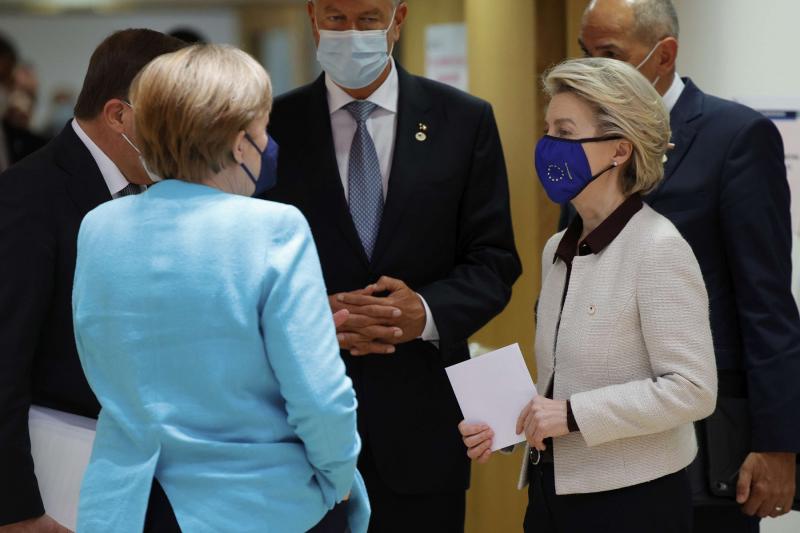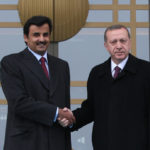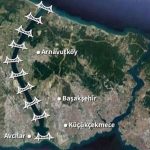Turkey on Friday expressed disappointment after an EU summit ended with a critical statement about Ankara’s rights record and no clear progress on a customs treaty or commitment on aid.
The EU in March held out a string of incentives to convince President Recep Tayyip Erdogan to make good on pledges to mend fraught relations.
Brussels is readying a plan to provide Turkey with 3.5 billion euros ($4.2 billion) in extra funding from 2021 to 2024 to help it host millions of refugees from Syria.
The leaders at their summit on Thursday told the European Commission executive body to present a formal proposal “without delay”.
Turkey currently hosts 3.7 million refugees from the conflict in Syria and has been used by the EU as a bulwark to help stem the flow of migrants into Europe.
A previous 2016 deal has seen Turkey receive four billion euros so far to keep a lid on arrivals coming into the bloc, with two billion Euros more set to be disbursed.
The plan for the new funding is part of a range of enticements the bloc is using to try to keep Erdogan on side.
Brussels is also dangling the possible modernisation of a customs union in front of Turkey and is moving to restart high-level talks on issues from health to security.
But the statement from the summit said that “rule of law and fundamental rights in Turkey remain a key concern”.
It also said the bloc expects Ankara to keep contributing “positively” to resolving regional conflicts, with Turkey deeply involved in Libya and Nagorno-Karabakh, as well as Syria.
And it insisted the EU remains committed to a “bi-communal, bi-zonal” solution for Cyprus after a push for two states from Ankara-backed Turkish Cypriot leaders helped torpedo efforts to restart peace talks.
EU chief Ursula von der Leyen on Friday warned Turkey’s leader not to jeopardise a push for better ties with the bloc by inflaming tensions on an upcoming trip to Cyprus.
President Recep Tayyip Erdogan has said he will travel to Turkish-controlled northern Cyprus on July 20 for the anniversary of Ankara’s 1974 invasion that led to the division of the island.

The controversial visit comes as the EU — of which Cyprus is a member — is looking to improve ties with its strategic eastern neighbour after tensions spiked in the eastern Mediterranean last year.
“This is a very sensitive topic for us. And we are very clear that we will of course observe how this visit will go and that we will never, ever accept as a European Union a two-state solution,” von der Leyen told a press conference after an EU summit in Brussels.
The Turkish foreign ministry said the statement “came well short of what was expected or necessary”.
“In order to reduce tensions and start dialogue and cooperation, Turkey has done more than its share,” it said.
Ankara has been at particular odds with France and historic rival Greece over Turkish drilling operations near the divided island of Cyprus and search for natural gas in disputed eastern Mediterranean waters.
But Ankara and Athens have resumed direct talks about their dispute for the first time since 2016 and Turkey has pulled back its research vessels from the contested areas of the sea.
Erdogan and French President Emmanuel Macron have also tried to calm their war of words by exchanging personal letters and meeting on the sidelines of a NATO summit this month.
Ankara expressed particular frustration with the limited progress made in Brussels on an upgrade of a customs treaty the sides reached in 1995.
The ministry called the lack of clear movement on the pact “a delaying tactic and a lack of goodwill”.
Source: Arab Weekly



